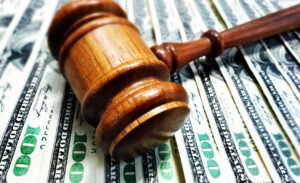
If you were injured in an accident in Boynton Beach, Florida, you may be entitled to compensation through a personal injury claim. That compensation generally falls into two broad categories: economic and non-economic damages. Economic damages are the measurable, out-of-pocket losses that result from an injury. These damages are the foundation of most personal injury awards.
Understanding how economic damages are calculated, what qualifies as an economic loss, and how to preserve your right to recovery is essential after any serious accident. Below is a guide to how economic damages work under Florida law.
What Are Economic Damages?

Economic damages are the tangible financial losses that result from an injury caused by another person’s negligence. Unlike non-economic damages, which compensate for pain and suffering, economic damages reimburse the victim for real, documented expenses.
Common types of economic damages include:
- Medical expenses: Emergency care, surgery, hospital stays, prescription medication, physical therapy, follow-up care, and medical devices.
- Lost wages: Time missed from work during recovery, including part-time or temporary jobs.
- Loss of earning capacity: Reduced ability to earn money in the future due to long-term or permanent injuries.
- Property damage: Repairs or replacement of vehicles, electronics, or other personal property damaged in the incident.
- Out-of-pocket costs: Transportation to appointments, home modifications (e.g., wheelchair ramps), and any services required because of the injury.
These damages are calculated based on bills, receipts, employment records, and other financial documents.
Who Can Recover Economic Damages in Florida?
Any person who has been injured by another party’s negligence may be entitled to recover economic damages.
This includes victims of:
- Car accidents
- Motorcycle accidents
- Slip and fall injuries
- Medical malpractice
- Dog bites
- Truck accidents
- Bicycle or pedestrian collisions
Family members may also recover certain economic losses in wrongful death claims, including funeral expenses and loss of financial support.
How Are Economic Damages Proven?
To recover compensation, you must provide evidence that directly ties your financial losses to the injury.
This typically includes:
- Medical records and bills from hospitals, clinics, and specialists
- Employer statements and pay stubs to show lost income
- Tax returns or financial statements for self-employed individuals
- Estimates or receipts for property damage
- Documentation of ongoing treatment needs or permanent limitations
In more complex cases, attorneys often work with economists or vocational experts to calculate future losses, including diminished earning potential or lifetime care costs.
How Are Future Economic Damages Calculated?
When an injury causes long-term or permanent harm, victims may be entitled to damages that extend far beyond the date of the accident. Future economic damages are based on projections and often require expert testimony.
Some factors used to calculate future losses include:
- Age and life expectancy
- Current and projected income
- Job skills and educational background
- Severity and permanence of the injury
- Future medical needs, including surgeries or home care
Future damages must be reasonably certain, not speculative. Courts will not award compensation based on hypothetical scenarios.
Are There Caps on Economic Damages in Florida?
Florida law does not cap economic damages in personal injury or wrongful death cases. Victims are entitled to full compensation for the financial costs directly caused by someone else’s negligence, no matter how high those costs may be.
However, it is essential to document your losses carefully. Insurance companies often dispute the value or necessity of medical treatment or challenge projected earnings. Having thorough records can make or break your case.
What’s the Difference Between Economic and Non-Economic Damages?
Economic damages are tied to concrete, measurable losses.
Non-economic damages, by contrast, compensate for more subjective harm, such as:
- Pain and suffering
- Emotional distress
- Loss of enjoyment of life
- Disfigurement
Both types of damages may be awarded in a personal injury case, but economic damages are often the foundation. Without them, a claim may not be viable.
Can Economic Damages Be Recovered in a Settlement?
Yes. Most personal injury claims settle before going to trial. Economic damages often take center stage in these negotiations. A solid record of your financial losses can boost your chances of a good settlement.
Settlement negotiations may involve back-and-forth discussions about:
- Whether certain treatments were necessary
- How long you were unable to work
- Whether you can return to your prior job
- How much future care will cost
An experienced attorney helps make sure your damages are calculated correctly and presented clearly to the other side.
How Long Do I Have to Recover Economic Damages in Florida?
In most Florida personal injury cases, you have two years from the date of the accident to file a lawsuit. If you don’t file in time, you may lose your chance to get any compensation, including for your economic damages. Early legal guidance is critical for preserving evidence and avoiding procedural pitfalls.
Contact Our Personal Injury Lawyers for a Free Consultation
If you suffered financial losses due to an accident in Boynton Beach, you may be entitled to recover compensation for your medical bills, lost wages, and other economic damages. At Green Personal Injury Lawyers, we have years of experience helping injury victims. We assist them in calculating and recovering the financial support they need to move on. Call now to schedule your free consultation at (561) 362-2009 and find out how we can help you pursue justice.
